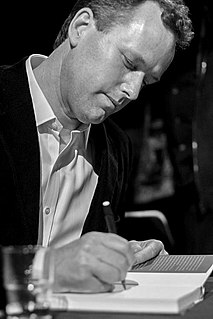A Quote by Shaun Tan
Perhaps the writer I've read the most of is Haruki Murakami, the Japanese writer, but I wouldn't necessarily say he's a favourite. I read him because I find his work so intriguing, but I don't necessarily feel I would follow this writer to the ends of the earth.
Related Quotes
No one can teach writing, but classes may stimulate the urge to write. If you are born a writer, you will inevitably and helplessly write. A born writer has self-knowledge. Read, read, read. And if you are a fiction writer, don't confine yourself to reading fiction. Every writer is first a wide reader.
No one can teach writing, but classes may stimulate the urge to write. If you are born a writer, you will inevitably and helplessly write. A born writer has self-knowledge. Read, read, read. And if you are a fiction writer, dont confine yourself to reading fiction. Every writer is first a wide reader.
It's not possible to advise a young writer because every young writer is so different. You might say, "Read," but a writer can read too much and be paralyzed. Or, "Don't read, don't think, just write," and the result could be a mountain of drivel. If you're going to be a writer you'll probably take a lot of wrong turns and then one day just end up writing something you have to write, then getting it better and better just because you want it to be better, and even when you get old and think, "There must be something else people do," you won't be able to quit.
I do find that people are incredibly naive about what it is to be a writer. Like you would pay an incredible amount of money for an MFA program and still not have the slightest idea of how one goes about becoming a writer. So, I'm always flabbergasted when people say, "Oh, I was invited to do a reading, but I'm not going to read because I don't have a book.".
When you find a writer who really is saying something to you, read everything that writer has written and you will get more education and depth of understanding out of that than reading a scrap here and a scrap there and elsewhere. Then go to people who influenced that writer, or those who were related to him, and your world builds together in an organic way that is really marvelous.
My father was the editor of an agricultural magazine called 'The Southern Planter.' He didn't think of himself as a writer. He was a scientist, an agronomist, but I thought of him as a writer because I'd seen him working at his desk. I just assumed that I was going to do that, that I was going to be a writer.






































